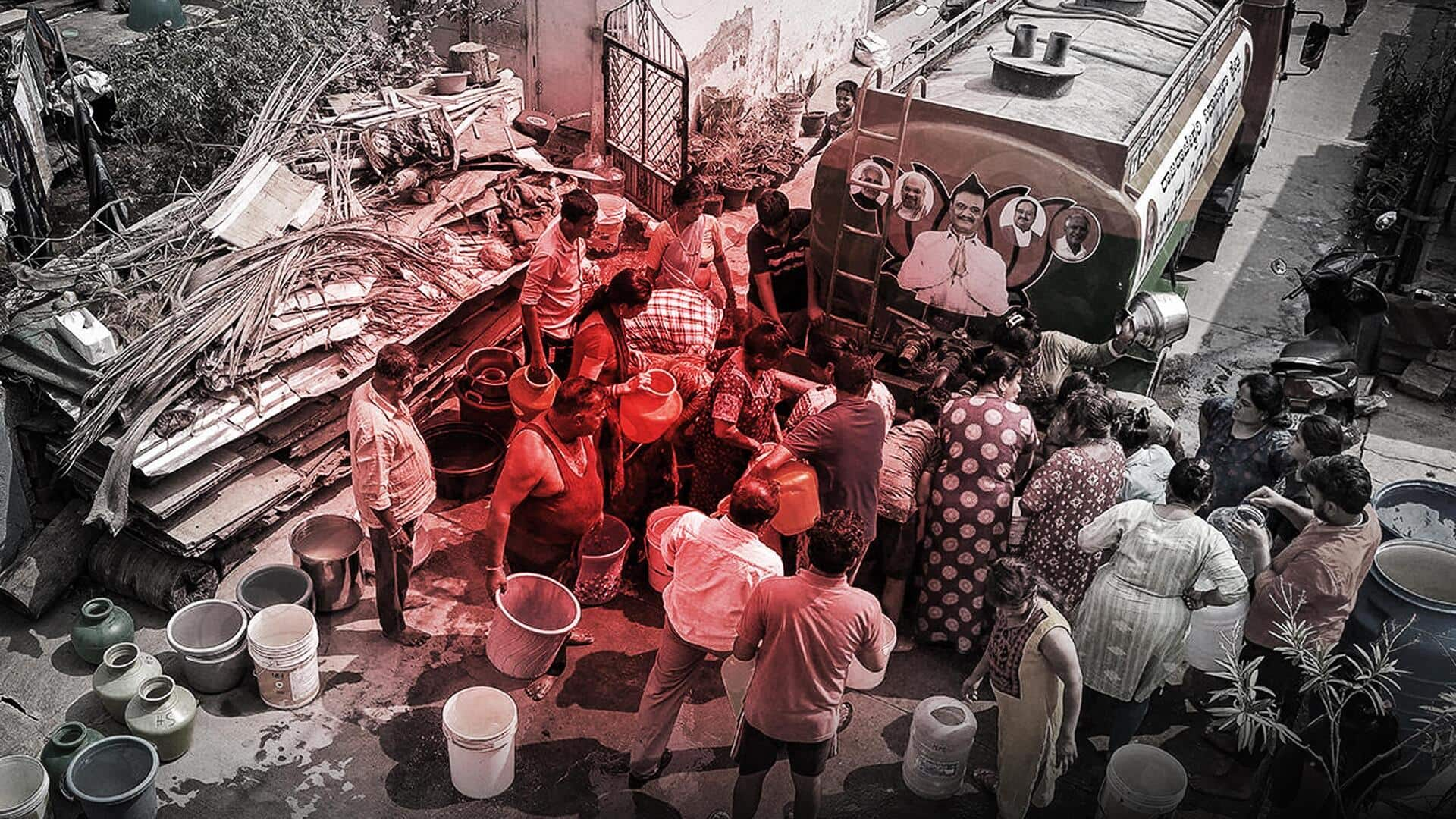
Scanty rainfall, empty reservoirs: What has caused Bengaluru's water crisis
What's the story
Bengaluru has been battling a severe drinking water crisis for almost a month.
The city, known as the Silicon Valley of India, is facing a daily shortage of 500 million liters, representing nearly one-fifth of the city's total daily demand.
The water shortage isn't confined solely to Bengaluru; it has spread throughout Karnataka and even reached neighboring areas in Telangana and Maharashtra.
Here are some of the factors contributing to the scarcity.
Scanty rainfall
Substandard rainfall, unique aquifers amplify water shortage
The water crisis stems from a combination of below-average monsoon last year and the distinct characteristics of the underground aquifers in the area.
In 2023, Karnataka witnessed an 18% reduction in rainfall during the monsoons compared to the usual levels—the lowest since 2015.
This triggered a "water stress" as the state relies on monsoon rains to recharge reservoirs and aquifers.
Additionally, South India's rocky aquifer system holds a limited water and depletes quickly during prolonged dry spells, worsening the situation.
Empty reservoirs
Dwindling reservoir levels heighten Karnataka water crisis
The scant rainfall has resulted in below-average water levels in the state's reservoirs—which are currently at about 26% of their capacity.
During the crisis, Karnataka is utilizing its reserves ahead of the summer season, raising concerns about potential challenges in the months ahead.
Separately, as the government intensifies water extraction for piped supply in urban areas from these reservoirs, rural areas dependent solely on groundwater are facing additional brunt.
Inadequate response by administration
Long term structural issues lead to water shortage
Notably, the Bengaluru water crisis can be attributed to the entrenched structural problems like uncontrolled urbanization, lake degradation, disruptions to natural groundwater systems, and climate change.
While seasonal rainfall variations have contributed to the situation, inadequate response by the administration to predict and manage the crisis has made matters worse.
Significantly, Bengaluru's crisis has garnered much attention due to the city's importance, however, it is certain that the state's rural areas are grappling with even more acute shortages.
Future water crisis
Experts advocate water conservation policies amid growing drought risks
Vimal Mishra, a professor of Civil Engineering and Earth Sciences at IIT Gandhinagar, underscored that valuing water as a resource is crucial and has suggested incentives for low consumption and discouragement of wastage.
The professor advised India to bolster its resilience against multi-year droughts, given their high likelihood at the state level, as suggested by an analysis spanning 800 years of data.
He further proposed that policies should discourage excessive groundwater use, like through household pumps.